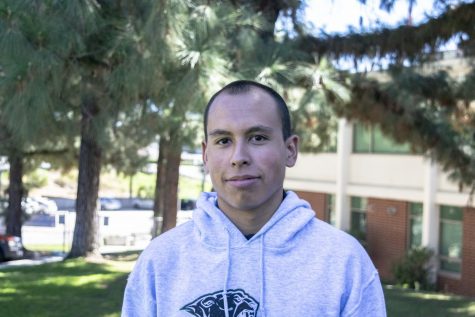School districts should monitor students’ public social media
Instagram is one of many social networks subject to the surveillance of public posts.
As social media has become nearly ubiquitous on smartphones all over the world, their creators and other private companies have profited by selling users’ data, both for good and bad. As reported by the New York Times, however, some of these companies are used by school districts to surveil students on various social media websites and get a closer look at what they do in their personal lives.
There is a benefit to the monitoring of student profiles in that there is potential for suicides to be prevented, bullying and harassment to be dealt with, and troublesome situations to be handled. School districts ask these companies to search for posts containing certain keywords that may be evidence of threats and report them to law enforcement if necessary, which can certainly lead to a safer society.
The private companies hired by school districts only track posts available to the general public and are not concerned with negligible comments about teachers and staff. Thus, since the posts that are looked at are public, there is no reasonable expectation of privacy to be had by the student. If someone posts something on their public-facing social media account, no matter it be something innocent or a threat, he or she should not expect the post to be private, especially in the current era of “surveillance capitalism.”
The concept of surveilling students on social media has not gone without criticism, however. For one, the New York Times notes that a student at Crescenta Valley High School used an expletive in a social media post about her biology class. When the assistant principal showed her a printed copy of the post, she was asked to change her account settings to private. It should be noted that this is rather ironic, however, as setting her account to private would mean that she would no longer be easily monitored.
There is more evidence which shows that these programs may not be all that effective after all. The New York Times mentions that “nineteen out of twenty people” whose posts get sent as alerts to Patrick Larkin, an assistant superintendent in the city of Burlington, Massachusetts, are not even Larkin’s students. There is thus reason to believe that it is not worth spending money on surveillance contracts with third party companies if they are not reliable at performing the task at hand.
The Glendale Unified School District paid Geo Listening $40,500 in the year 2013 in order to monitor students after there was a suicide due to online bullying, according to the Los Angeles Times. However, they dropped their contract with the company last year once the District noticed that Instagram and Snapchat were not being surveilled, the latter being extremely difficult to monitor. Since Instagram and Snapchat are used by teens more often than platforms such as Twitter, it is financially responsible for the District to have dropped the contract, especially considering that students tend to be more personal on these two networks.
In terms of what the District should do next, they should look for other private companies who will offer student monitoring at a reasonable price. If they cannot find a company that parses through larger social media networks such as Instagram and does so with attention to student privacy, then the District should not continue the monitoring of student profiles via a third party and should consider the issue to be settled until there is a reason to believe otherwise.
In the interest of privacy, attention should be paid as to how these algorithms monitor students online and how data is stored. If the methods used to surveil students create profiles or make assumptions about a student, then the information gained should not be sold to the highest bidder and should remain private only in the hands of the company. Data collected by these private companies should not be stored indefinitely as it is vulnerable to hacking and should be stored and transferred securely, as well as deleted as soon as possible.
The entire debate over social media surveillance of students essentially boils down to the idea that it is worth doing in case it saves even just one life. While this logic is not reasonable when it comes to invasions of privacy, there is no such issue when surveilling public posts and there is thus no major issue with it as long as the proper privacy measures are put in place.

Hobbies: Playing the electric guitar, going on Reddit
Favorite shows: The Office
Places you want to travel to: San Francisco, Mexico, Canada, Norway
Items...



